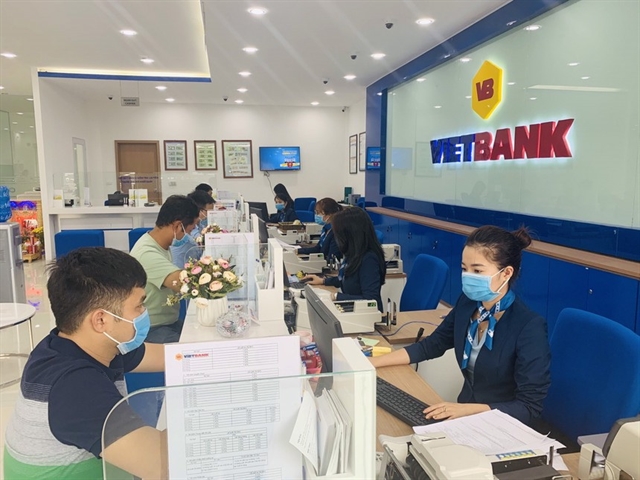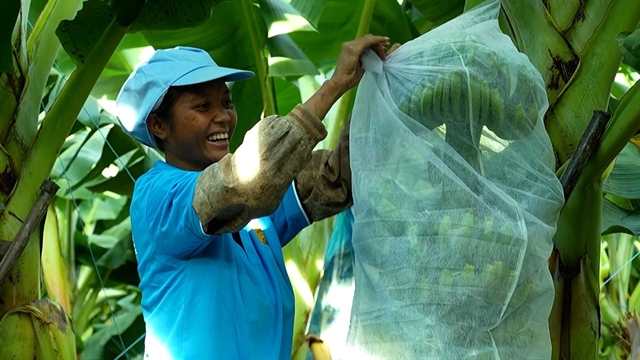 Economy
Economy

Banks in HCM City are focusing on measures to mitigate the difficulties faced by businesses due to the Covid-19 pandemic and help them get back to health, a State Bank of Vietnam official has said.

|
| Customers at a Vietbank transaction office in HCM City. The banking sector will continue to undertake programmes to help businesses overcome difficulties caused by the Covid-19 pandemic and restore production. — Photo courtesy of the bank |
HCM CITY — Banks in HCM City are focusing on measures to mitigate the difficulties faced by businesses due to the Covid-19 pandemic and help them get back to health, a State Bank of Vietnam official has said.
Nguyễn Hoàng Minh, deputy director of the SBV’s HCM City branch, said the central bank is working with local authorities, the HCM City Union of Business Associations and other agencies to ease funding difficulties faced by businesses.
The SBV and the city authorities had organised a programme to connect banks with enterprises and business households to enable the latter to get loans at low interest rates, he said.
By the end of August outstanding loans under the programme had reached VNĐ289 trillion (US$12.45 billion), with 75,164 loans given, he said.
Loans to enterprises in the export processing zones and industrial parks had increased by 12.7 per cent as of the end of July to VNĐ180.58 trillion ($7.78 billion), he said.
Preferential credit packages
Besides extending loan repayment schedules, many banks have also launched preferential credit packages for corporate customers.
For instance, Viet Capital Bank has launched several preferential credit packages for SMEs worth a total of VNĐ6 trillion.
HDBank also has a preferential loan package that offers a credit limit of up to VNĐ2 billion at interest rates of 8.6 per cent and maximum tenor of 60 months.
Saigon-Hanoi Commercial Joint Stock Bank has deployed a programme for microbusinesses with flexible policies.
Asked whether loan interest rates would continue to decrease to support businesses during the peak business season at the end of the year, Minh said after the SBV cut the interest rate cap for a third time this year, banks had reduced their deposit rates for six months to less than 4 per cent.
Lending interest rates still have room to decrease, but maybe not sharply since banks have already gradually cut them to a low level to assist customers affected by the pandemic, according to Minh.
“A decrease in interest rates will stimulate credit growth in the remaining months of 2020. This is also the peak business season of the year, so credit demand will increase compared to other months of the year.
“The banking sector will provide enough capital for businesses as well as the economy.” — VNS




